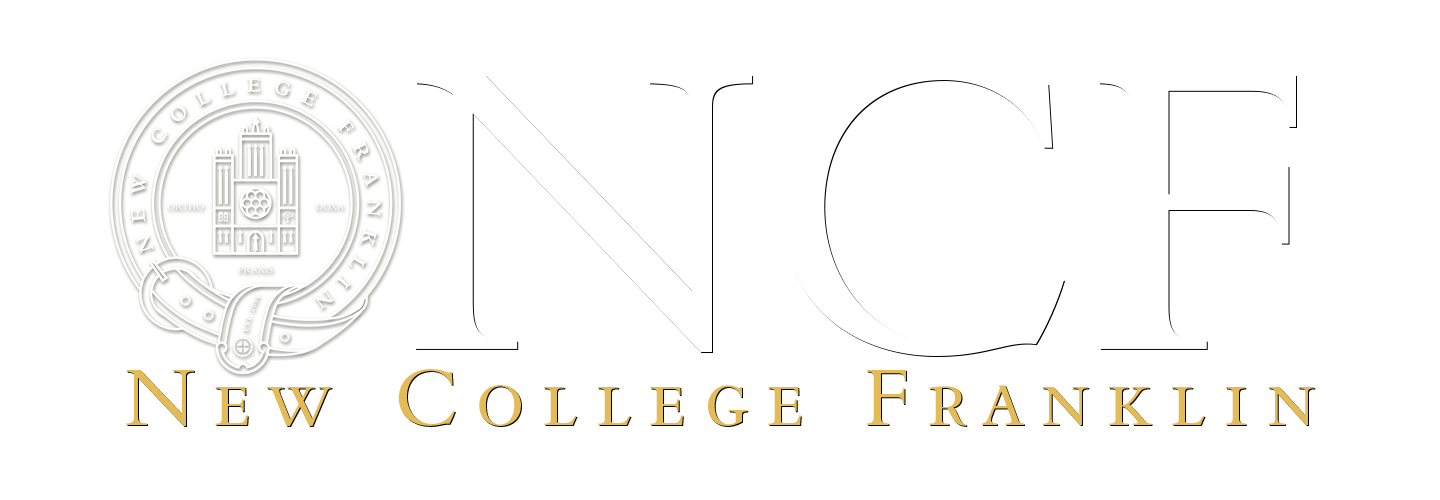Liberal Arts Under Christ
Reforming Education for Christ’s Kingdom
New College Franklin does education differently. At no other time in history has higher education been as popular and prolific. In America alone, there are more than 4,000 colleges and universities. While collegiate access is greater than it has ever been, this does not mean that all is well in the world of higher education. As C.S. Lewis notes, secular education abounds but true Christian higher education is becoming increasingly scarce.
Because of this, New College Franklin exists out of calling: the calling of Christians to Hear the Lord our God is One and to raise up the next generation in the wisdom of the Lord. That is true education in the Word, and New College Franklin exists to play such a role in reforming education for Christ’s Kingdom.
The Modern Problem of Christian Education
Up to the end of the 19th century, New College Franklin would have been one among many like-minded institutions, since all higher education pursued common goals of truth and wisdom. Theirs was an education that sought to address fundamental questions:
What is truth?
Who is God?
What is His creation?
What is man?
How is man to love, serve, and worship the Lord God?
Education in modernity no longer asks these questions. In the place of classical and Christian pursuits in higher education, the goal of education became vocational-technical training. Education no longer entailed the search for knowledge, understanding, and wisdom. Instead, it sought pragmatic, utilitarian purposes. Instead of the liberal arts, mechanical arts and agriculture took precedence; and higher education inherited new goals for a new end— a vocational-technical end. As man studies and acts, so he is, and under this new philosophy, the culture of higher education treats man primarily as a utilitarian being. This is the predominant mode of education in modernity, and this mode is rarely true education—at best it is simply training.
This shift has been costly as people’s priorities have shifted. Now, most students expect college to be job training or career certification—goals that reduce the holistic value of a classical college education. This is not to say that liberal arts education does not value job training; but it is to say that job training is not where education begins, nor is it where it ends. When the goal of education is utility, man will become utilitarian. When the goal is pragmatic, so is man, and the value of education is grossly reduced — as is man himself. Education that seeks utilitarian ends externalizes the focus of higher education. The emphasis is on passing a course of study for the sake of a degree rather than for the knowledge, understanding, and wisdom that the degree should represent.

The Care of Souls: A Humane Education
In contrast to the modern approach to education, the ordo salutis provides a helpful model for how education works. The call of the Lord comes from the outside, but the change is within, and then this internal change bears fruit in action. The same is true in education. While education should take into consideration a student’s vocation, the student—not the vocation—is the proper focus of education. Education that follows this truth imitates the natural order in which the Holy Spirit moves man. True education directs God’s light to the heart of man, and then a flame is lit within that alters every part of him — from within to without.
Scripture is clear that man is called to seek more than marketplace success: “Seek ye first the kingdom of God and His righteousness, and all these things shall be added unto you” (Matt. 6:33). True education cultivates the whole person—spiritual, physical, and mental—into the image of Christ.
For centuries, the liberal arts, the freeing disciplines, have served as the curriculum for this holistic education. The student who encounters the Trivium (grammar, logic, rhetoric) and Quadrivium (arithmetic, geometry, music, astronomy) will emerge with a stronger mind and soul that can know and enjoy God and His creation. New College Franklin embraces this classical Christian tradition not simply to continue a tradition, but rather to see the redemptive richness of this tradition feed Christ’s Kingdom, seeking to carry out the ancient vision of the Christian liberal arts as displayed in the work of Jan Amos Comenius and Thomas Chalmers at New College, Edinburgh. We stand on this broad time-tested foundation.
With this vision, all courses at New College Franklin examine human culture, emphasizing the basic classical scholastic approach of moral philosophy. Our students are entrenched in the moral drama of history by experiencing the great literary classics of theology, philosophy, poetics, mathematics, and science, including the resulting technological developments. Our curriculum explores the wide sweep of art, architecture, music, and language; and we approach all these disciplines with an emphasis on a Christian life paradigm.
The idea is to study human achievement in context — both in terms of its providential and cultural importance. Out of this integrated understanding of God’s world every other subject and discipline is formed.

Imago Trinitatis
New College Franklin exists to meet this need — to offer genuine education of the whole man. In Latin, education (educere) means “to lead out of,” which implies that a student is led from somewhere to somewhere: there must be a specific goal of education.
We seek to cultivate the next generation of Christians, leading them out of darkness and ignorance through the light of the Spirit into the truth of the Son by the love of the Father. This Trinitarian education is the journey of maturity in Christ, the perfect Whole Man.
Moreover, this purpose of education makes New College Franklin a rare opportunity in today’s fragmented culture of higher education. Made in the image of God, man is a Trinitarian being, and thus ours is a reforming education that humbly seeks Trinitarian life.

